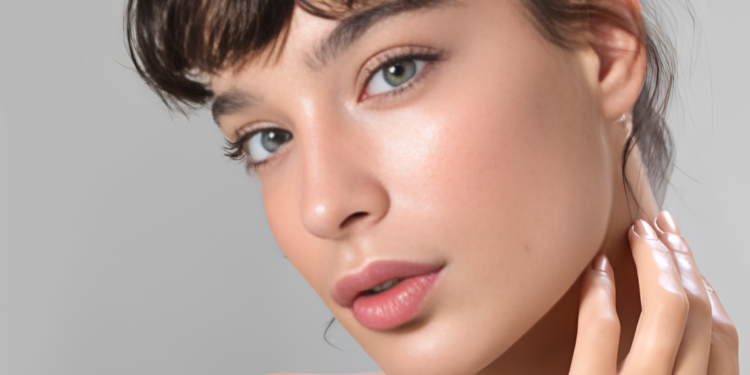If you believe the advertising and all those influencers you see on TikTok, face collagen cream is an absolute miracle of the cosmetic industry, promising quick relief from wrinkles and other signs of age with effective moisturizing and smoothing of the skin. But is it worth blindly believing these statements? Let’s figure out what collagen is used for in cosmetics, what it is like and what effect it really has on facial skin.
What is collagen, and why is it needed?
First of all, we’ll look into what collagen really is and what it is precisely needed for because this substance has been added to almost all modern lifting products today. Is it necessary for facial skin to experience age-related changes? Or is it entirely possible to do without this widely advertised product? Let’s answer all these questions once and for all!
●To your surprise, collagen is a protein found in the connective tissues of the human body. Yes! It is already in your body.
●However, most of this substance (approximately 70%) is found in the epidermis and dermis (layers of skin), and only the remaining 30% is found in joints and cartilage. That’s why your skin needs it more.
●The molecule has a spiral shape and acts as a connecting link between skin cells, being a kind of framework responsible for the firmness and elasticity of the skin (secret recipe of youth). It is with a decrease in the number of collagen molecules in cells that the appearance of the first signs of skin ageing is associated – the first wrinkles and changes in the oval of the face.
So, collagen is needed to maintain the elasticity and tone of the facial skin. At a young age, the body actively produces the substance on its own, so it does not need additional sources of its supply. However, over time, cells are no longer renewed so quickly, and in order to maintain your beauty, additional measures have to be taken timely and externally to maintain that glow.
Collagen cream – YAY or NAY?
We are convinced of the need for collagen for the body. However, we were talking about molecules produced by the skin itself and not artificially synthesized. Depending on its origin, collagen in cream can bring both benefit and harm. So it can be both a yay or a nay for you!
Collagen from plants
Collagen protein is obtained from a variety of plant and animal sources. As for the first, the substance produced by plants cannot be called collagen in the complete sense of the word. Extracts of wheat, soy, and other plants contain a large amount of amino acids that help moisturize and nourish the skin but are not able to stimulate their own production of collagen molecules. Plant collagen is considered the safest for humans, but creams that contain it are pretty expensive.
Collagen from animals
On the flip side, damage can be caused by protein obtained from the dermis of cattle, which has been used in cosmetology for a long time. At the moment, many manufacturers have abandoned it owing to the increasing incidence of allergic reactions. The best substitutes are cosmetics containing collagen molecules extracted from the skin and shells of sea creatures – fish and shellfish. These substances are harmless to humans since they almost precisely replicate the structure of their own protein.
What should you choose?
Buying good cosmetics with collagen inexpensively is almost impossible. Most likely, such products will use a substance of animal origin, the use of which is undesirable. It is better to choose a cream with marine or, in extreme cases, vegetable collagen protein. It must be stored in the refrigerator; under no circumstances should you use a product that has expired.
It should also be taken into account that collagen creams and other cosmetics can become addictive over time, and the skin will stop producing its own molecules. Therefore, you can use such cosmetics only after 40 years and not before that or you are likely to kill your cells.
Effectiveness of Collagen creams
What effect does collagen, or more precisely, a cream containing it, have on the skin of your face? The goal of developing these cosmetics was to prolong the youth of the epidermis and dermis at the cellular level to stimulate the production of its own collagen molecules, which would guarantee natural skin renewal.
High-quality face moisturizer collagen cream effectively and profoundly moisturizes the epidermis, increases the elasticity and firmness of the skin, has a lifting effect, eliminates age-related pigmentation, minimizes minor cosmetic defects (scars, acne scars, post-acne), and reduces the number of wrinkles. However, all of the above applies only to high-quality cosmetics that are not sold in the mass market. Thus, it is recommended to buy them in specialized stores or pharmacies.
Types of cosmetics with collagen
Collagen in cosmetics is used not only for facial skin care. It is also used to improve the condition of hair, as well as to slow down the ageing of the skin around the eyes. Masks, serums and creams are made for the face based on collagen protein.
●Masks are intended for something other than home use. The procedure for their use must be supervised by a specialist. Masks are collagen sheets that help create a film on the surface of the skin that retains moisture and fills uneven areas.
●The collagen molecules that make up the creams are designed to fight the appearance of wrinkles due to their ability to increase several times, absorbing moisture. Penetrating into the epidermis, they seem to “push out” wrinkles from the inside, levelling the relief of the skin.
●In serums, collagen protein obtained from marine crustaceans is used in combination with hyaluronic acid to enhance the effect of rejuvenation and intensive hydration of the skin.
Conclusion
Collagen molecules contained in hair cosmetics (masks, balms, serums) help get rid of increased dryness and fragility, cure damaged split ends, make curls more manageable, increase their volume, and enhance shine. Thus, cosmetics with collagen, provided they are of proper quality, are not only functional but also necessary.



